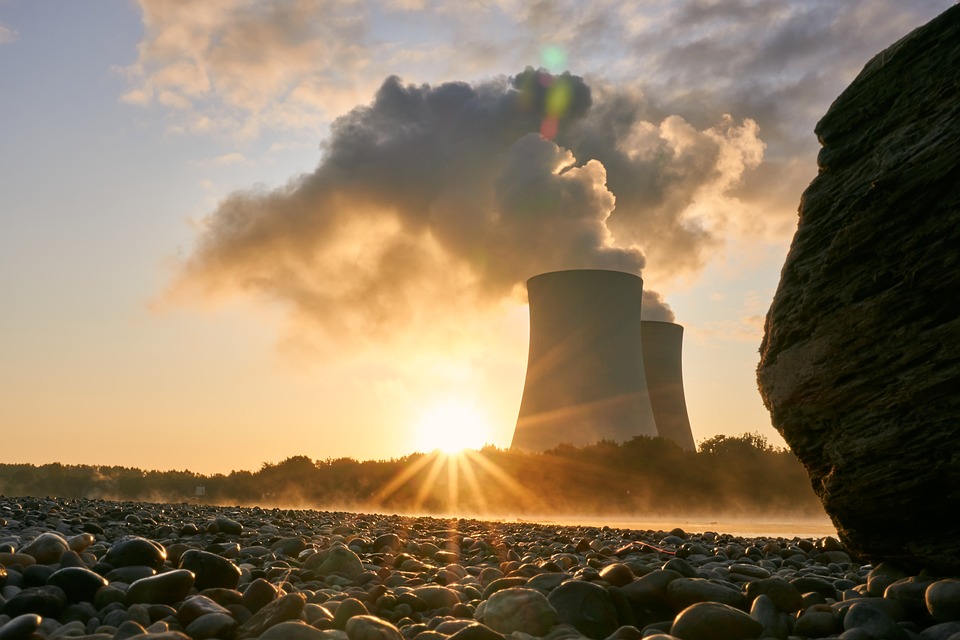The Role of Nuclear Energy in National Security and Defense
Nuclear energy plays a crucial role in national security and defense of many countries around the world. From providing a stable source of energy for military installations to powering nuclear submarines and aircraft carriers, nuclear energy has become an indispensable tool for safeguarding a nation’s interests and protecting its citizens. In this article, we will explore the various ways in which nuclear energy contributes to national security and defense efforts.
Nuclear Energy in Military Installations
One of the primary uses of nuclear energy in national security and defense is in providing power to military installations. Due to their remote locations and the need for constant, reliable power supply, military bases and facilities often rely on nuclear energy to meet their energy demands. Nuclear power plants are capable of providing large amounts of electricity consistently, making them an ideal choice for powering military operations.
Having a stable source of energy is essential for ensuring that communications systems, radar systems, and other critical infrastructure remain operational at all times. In times of crisis or conflict, having a reliable power supply can mean the difference between success and failure in military operations. By utilizing nuclear energy, military installations can ensure that they have the necessary resources to carry out their missions effectively.
Nuclear-Powered Submarines and Aircraft Carriers
Nuclear energy also plays a vital role in the operation of nuclear-powered submarines and aircraft carriers. These vessels rely on nuclear reactors to generate the power needed to propel them through water and support the various systems onboard. Nuclear-powered submarines in particular have revolutionized naval warfare by enabling them to remain submerged for long periods without the need to surface for refueling.
By using nuclear energy, naval forces can operate more independently and with greater stealth, making them more effective in carrying out their missions. Nuclear-powered submarines and aircraft carriers provide the military with a strategic advantage by allowing them to project power across the seas and respond quickly to threats or emergencies.
Nuclear Deterrence and Strategic Stability
One of the key aspects of nuclear energy in national security and defense is its role in nuclear deterrence and maintaining strategic stability. Nuclear weapons have long been used as a deterrent against potential adversaries, as the threat of nuclear retaliation serves as a powerful deterrent against aggression. By possessing a credible nuclear deterrent, countries can deter potential adversaries from taking actions that could threaten their security.
Nuclear deterrence has played a vital role in preventing major conflicts and maintaining peace between nuclear-armed states. The concept of mutually assured destruction (MAD) highlights the idea that any nuclear attack would result in the complete destruction of both the attacker and the defender, thereby discouraging both parties from engaging in nuclear warfare.
Non-Proliferation and Nuclear Security
In addition to serving as a deterrent, nuclear energy also plays a critical role in non-proliferation efforts and ensuring the security of nuclear materials. Countries with nuclear weapons capabilities have a responsibility to secure their nuclear materials and prevent them from falling into the hands of terrorists or rogue states. By implementing robust security measures and international agreements, countries can reduce the risk of nuclear proliferation and prevent the spread of nuclear weapons.
International organizations such as the International Atomic Energy Agency (IAEA) play a crucial role in monitoring and verifying compliance with nuclear non-proliferation agreements. By working together to safeguard nuclear materials and prevent their misuse, the international community can enhance global security and reduce the risk of nuclear terrorism.
Conclusion
In conclusion, nuclear energy plays a multifaceted role in national security and defense, from providing power to military installations to powering nuclear submarines and aircraft carriers. By harnessing the power of nuclear energy, countries can ensure a stable source of energy for critical operations, project power across the seas, deter potential adversaries, and enhance global security through non-proliferation efforts.
As the world continues to grapple with new security challenges and threats, nuclear energy will remain a key component of national security strategies for many countries. By leveraging the benefits of nuclear energy while addressing the associated risks, nations can enhance their security and protect their citizens from potential threats.
